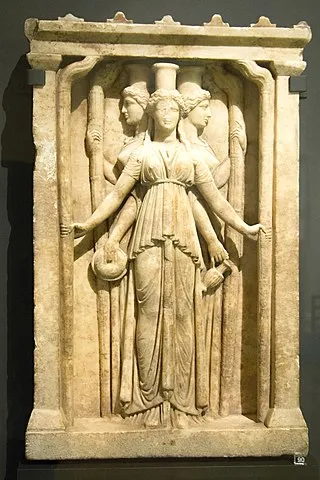
In a previous post about the "Goddess of a Thousand Names," she was linked with Magna Mater of Rome, Kybele of Phrygia and Guadalupe of Mexico. Another of her names is Tripura Sundari, in Hindi: "the most beautiful woman in the three worlds" — quite an adequate description of Hecate as well. Three in one.
Hecate is a virgin goddess associated with the Moon and its phases, as perhaps that is where she resides. She is the ruler of the three worlds: land, sky, and sea.
A magical wheel or "Strophalos of Hekate" is mentioned by Psellus in the Chaldæan Oracles.
A single being with many manifestations, avatars or aspects with a home on the Moon?
Who then is the Mother of the Gods? She is the source of the intellectual and creative gods, who in their turn guide the visible gods: she is both the mother and the spouse of mighty Zeus; she came into being next to and together with the great creator; she is in control of every form of life, and the cause of all generation; she easily brings to perfection all things that are made; without pain she brings to birth, and with the father's aid creates all things that are; she is the motherless maiden, enthroned at the side of Zeus, and in very truth is the Mother of all the Gods. Hymn to the Mother of the Gods — from The Works of the Emperor Julian, translated by Emily Wilmer Cave Wright
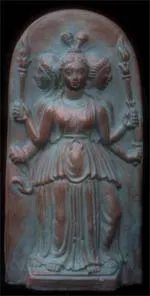
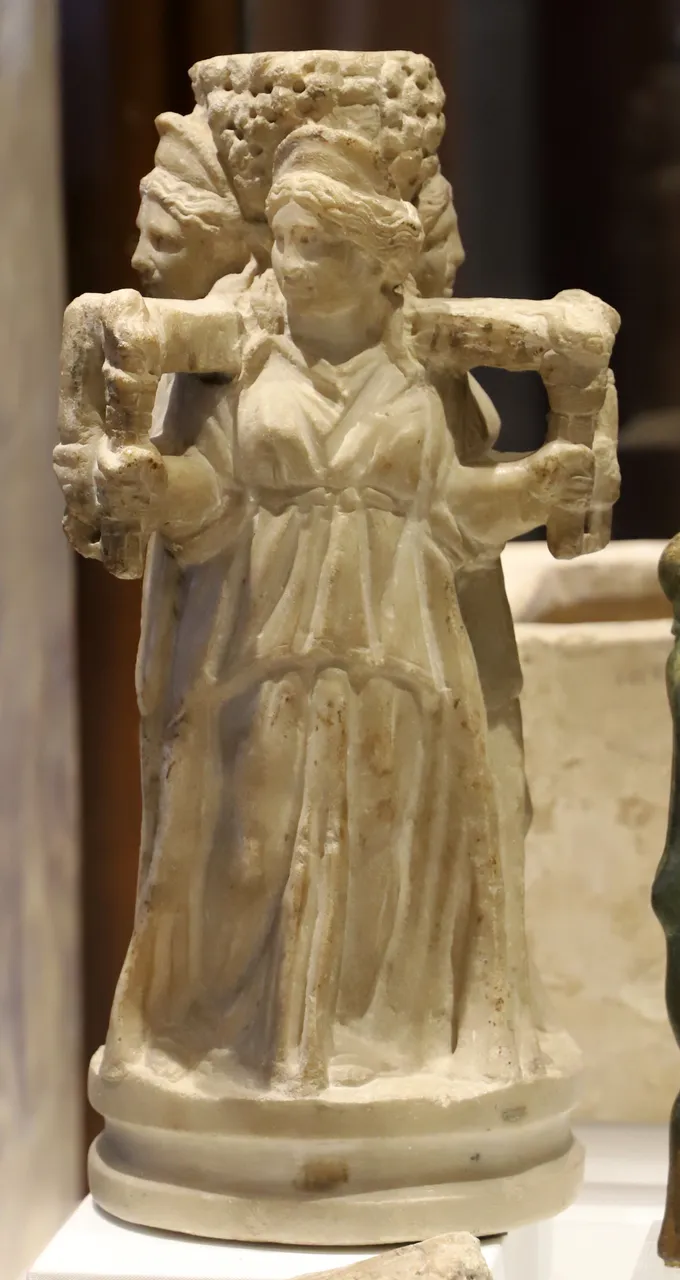
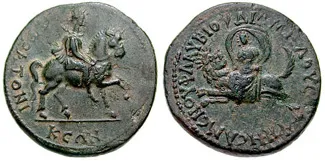
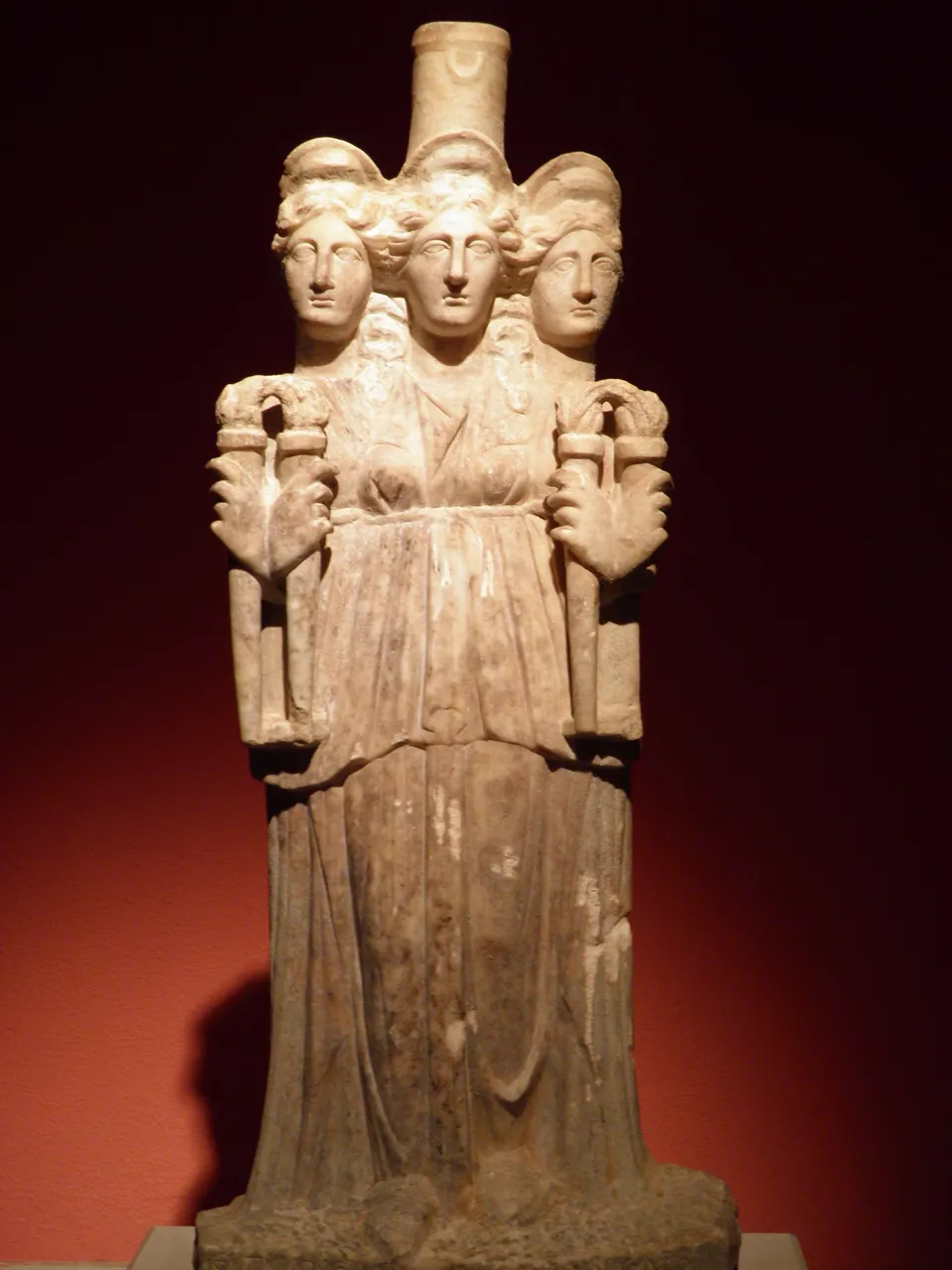
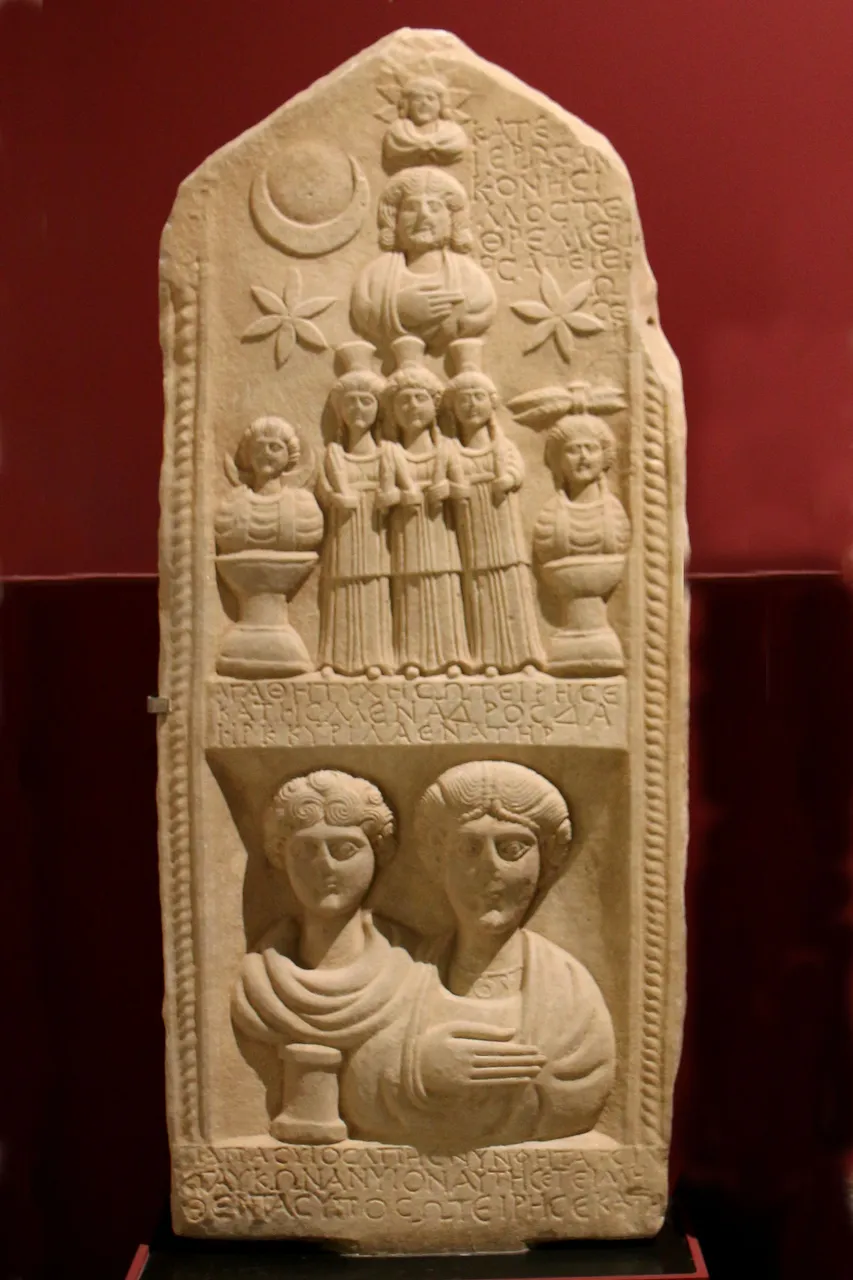
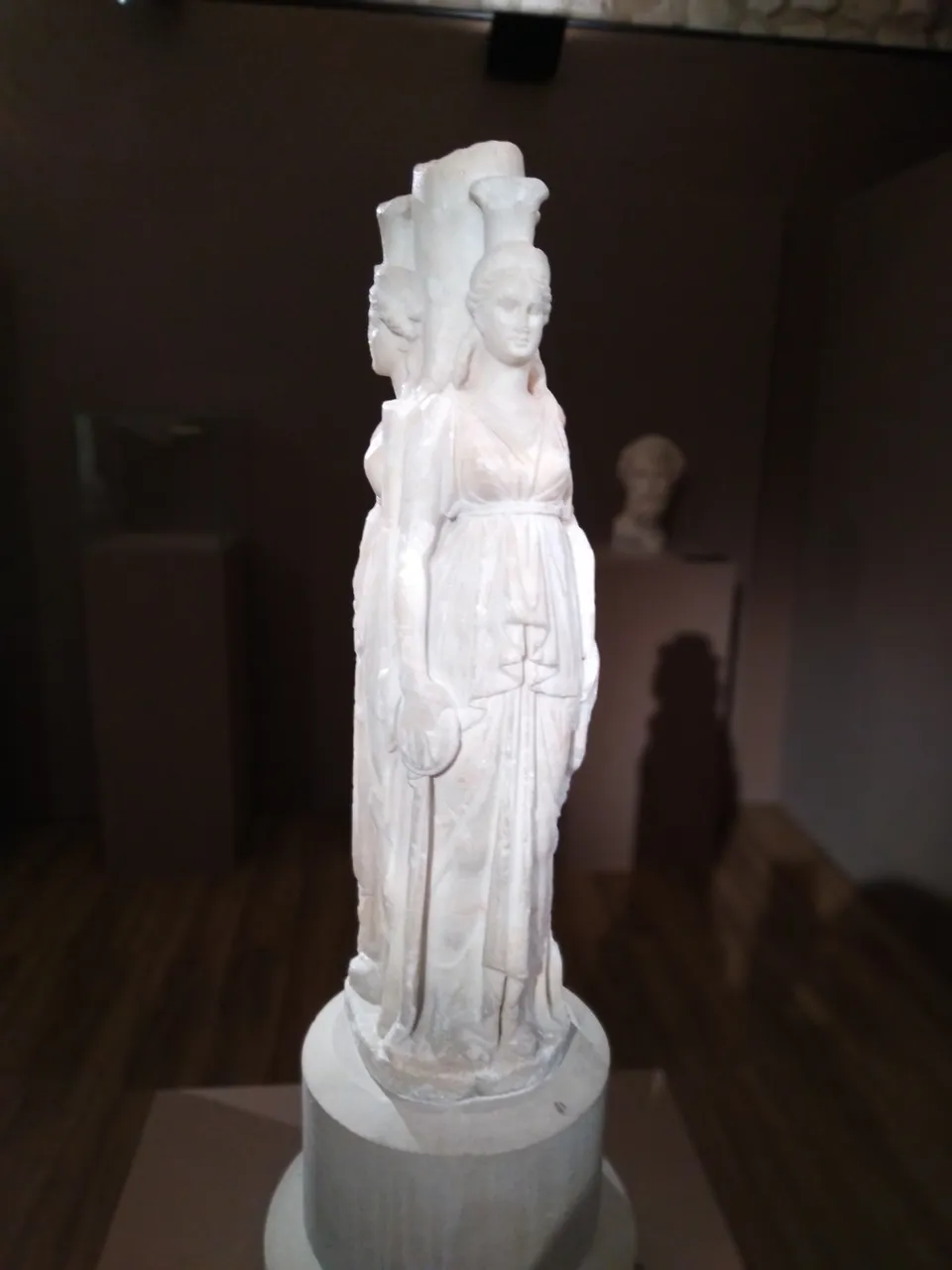
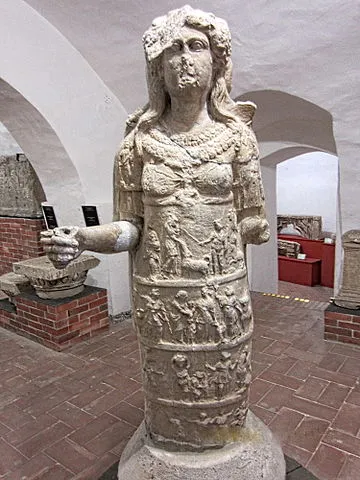
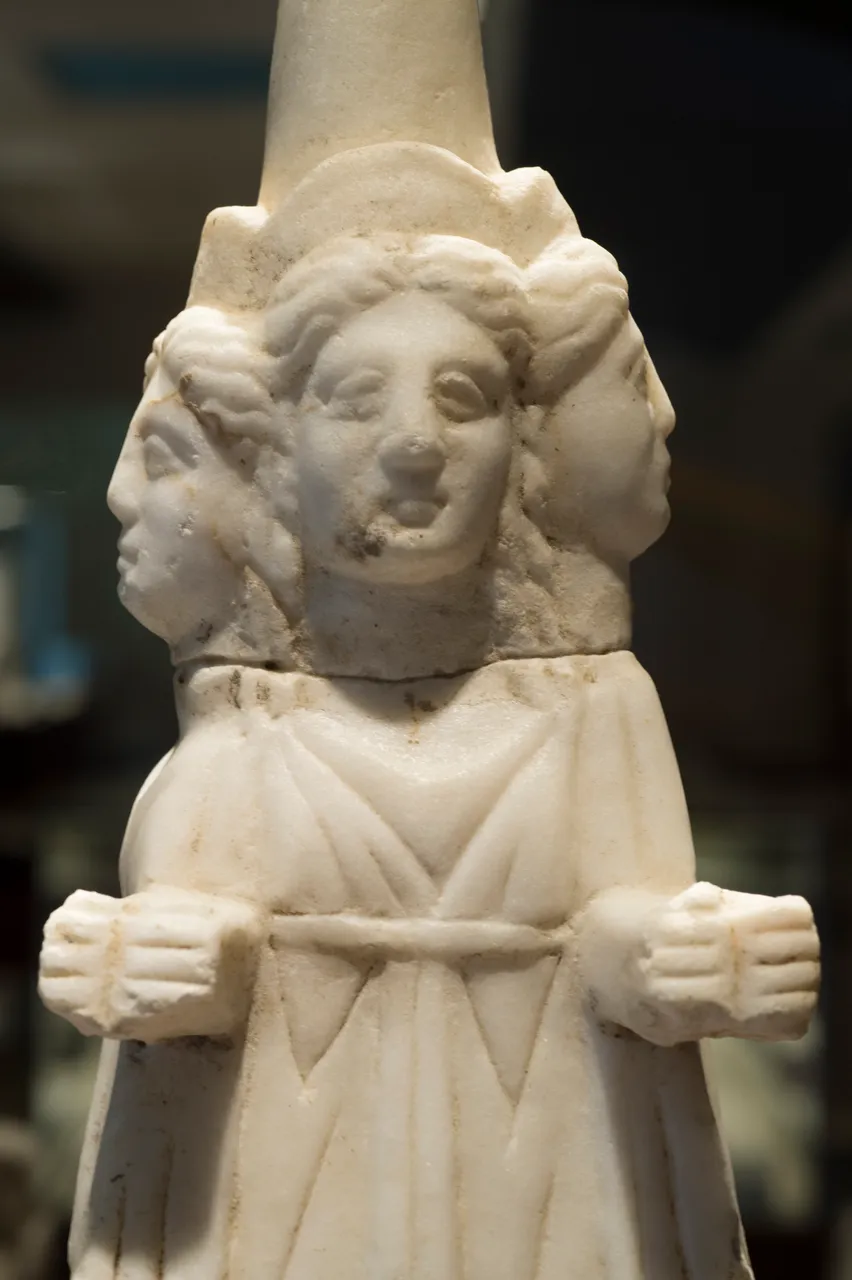
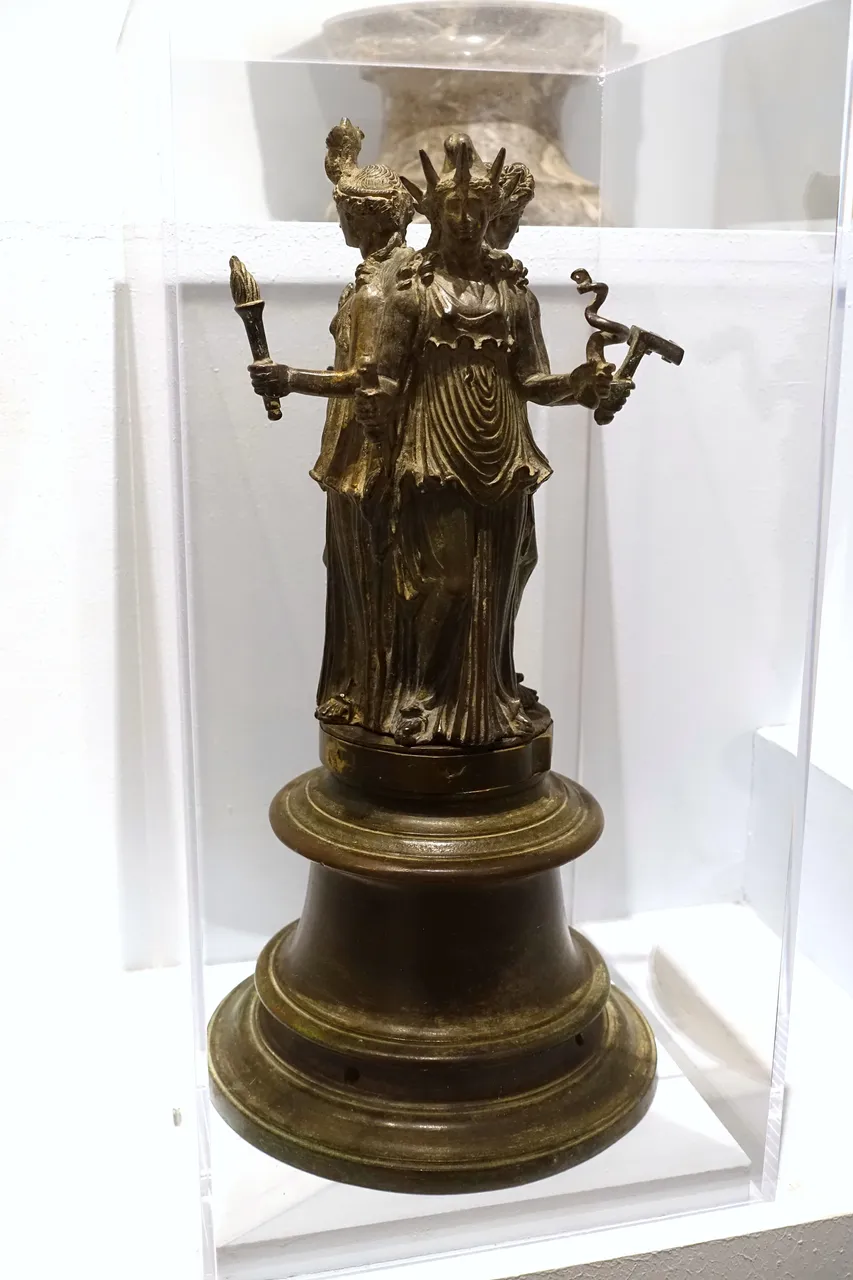
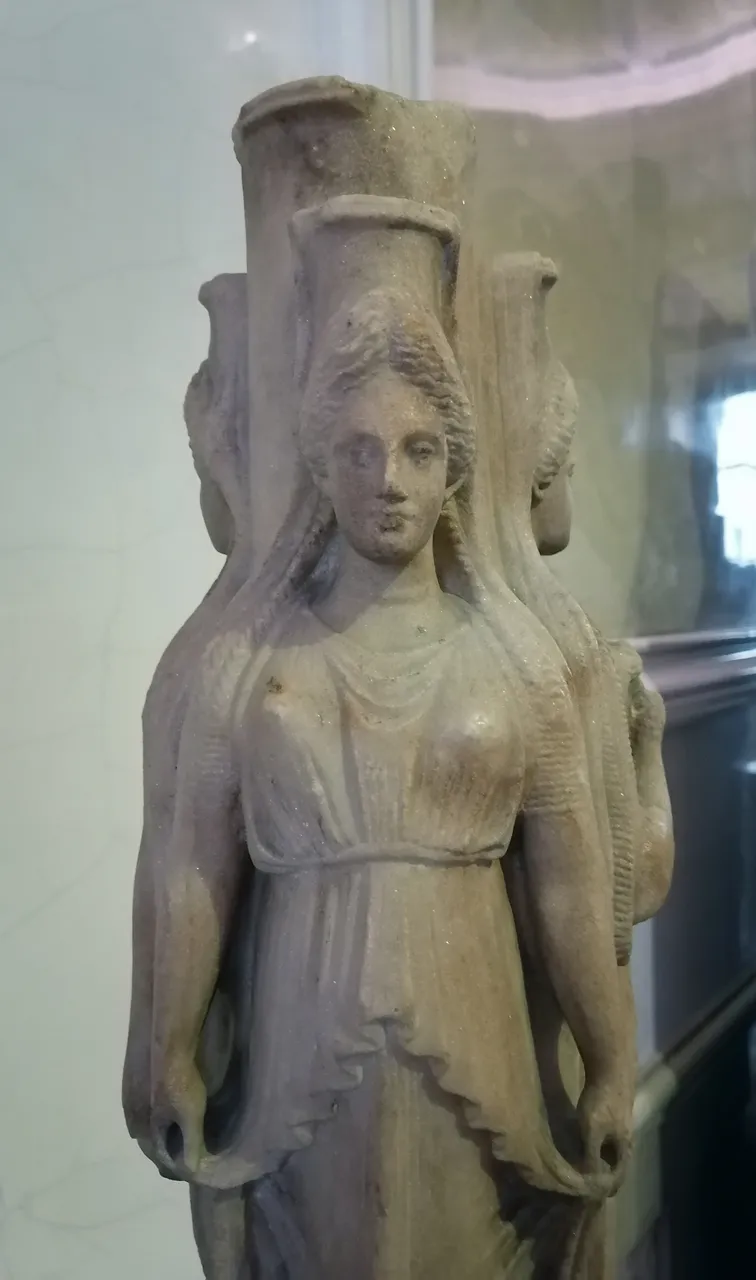
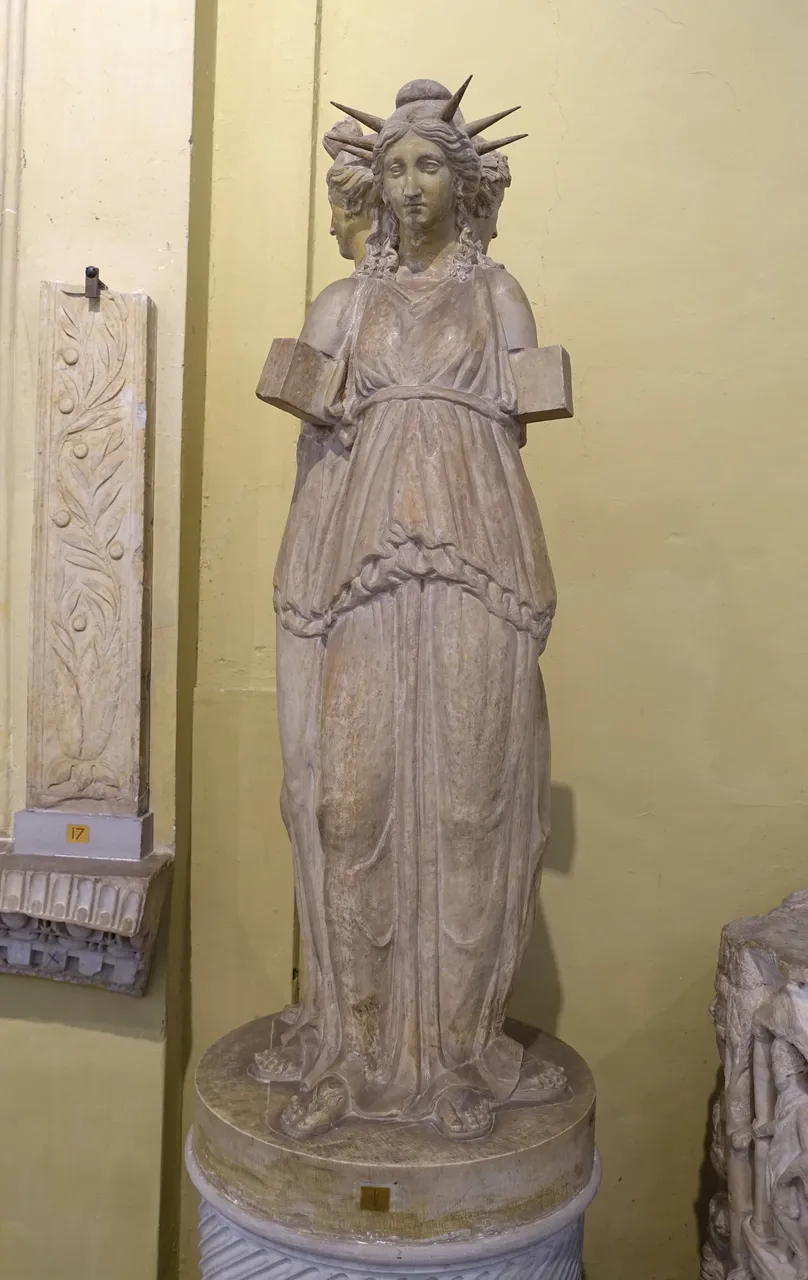
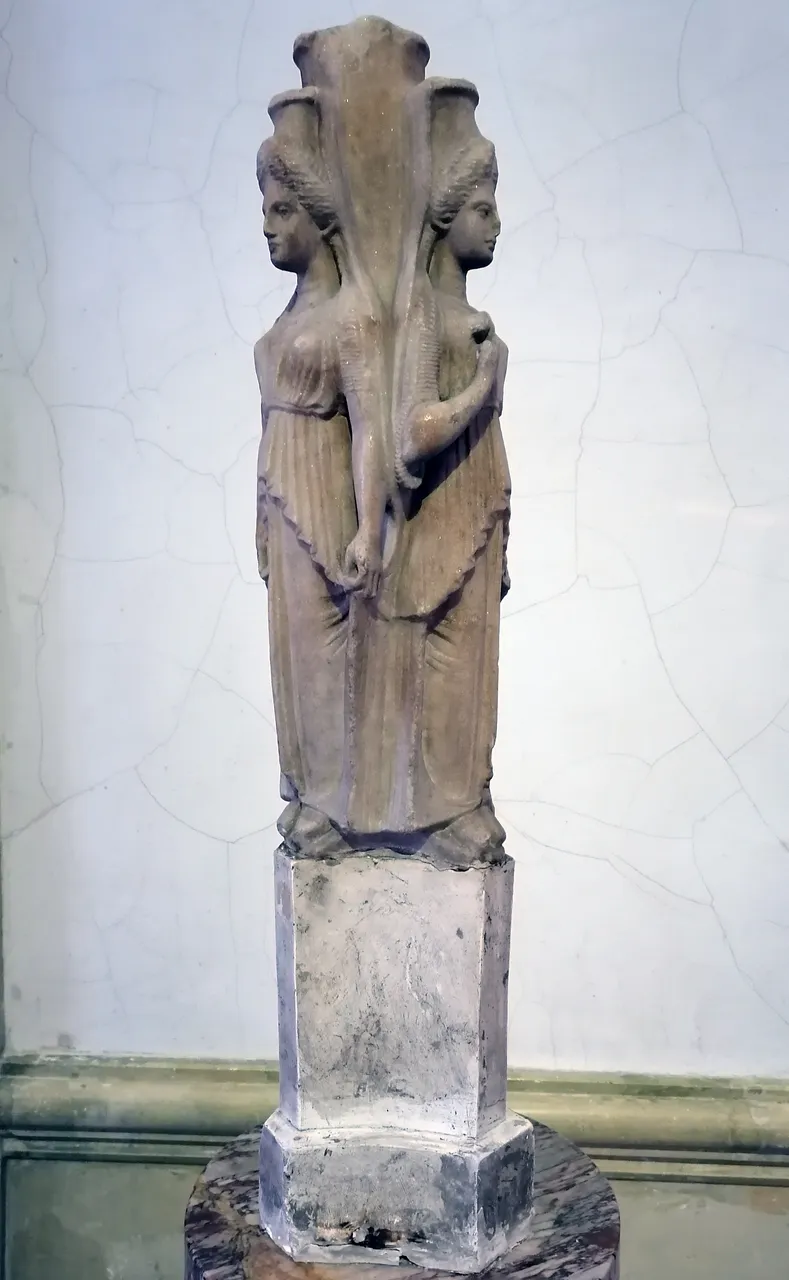
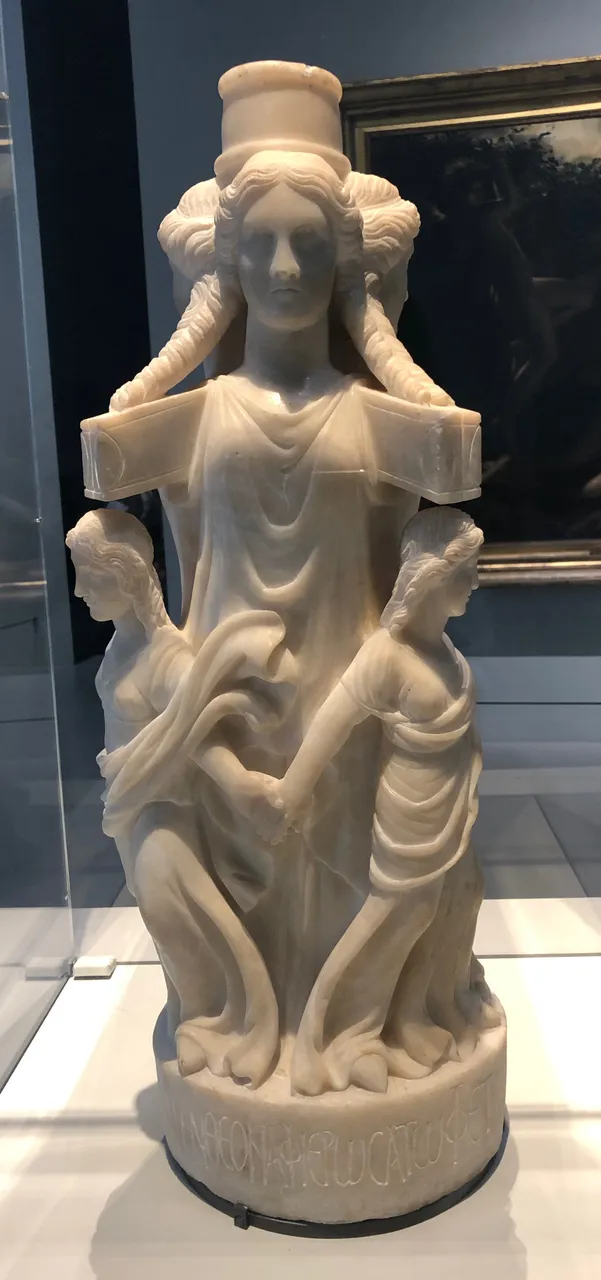
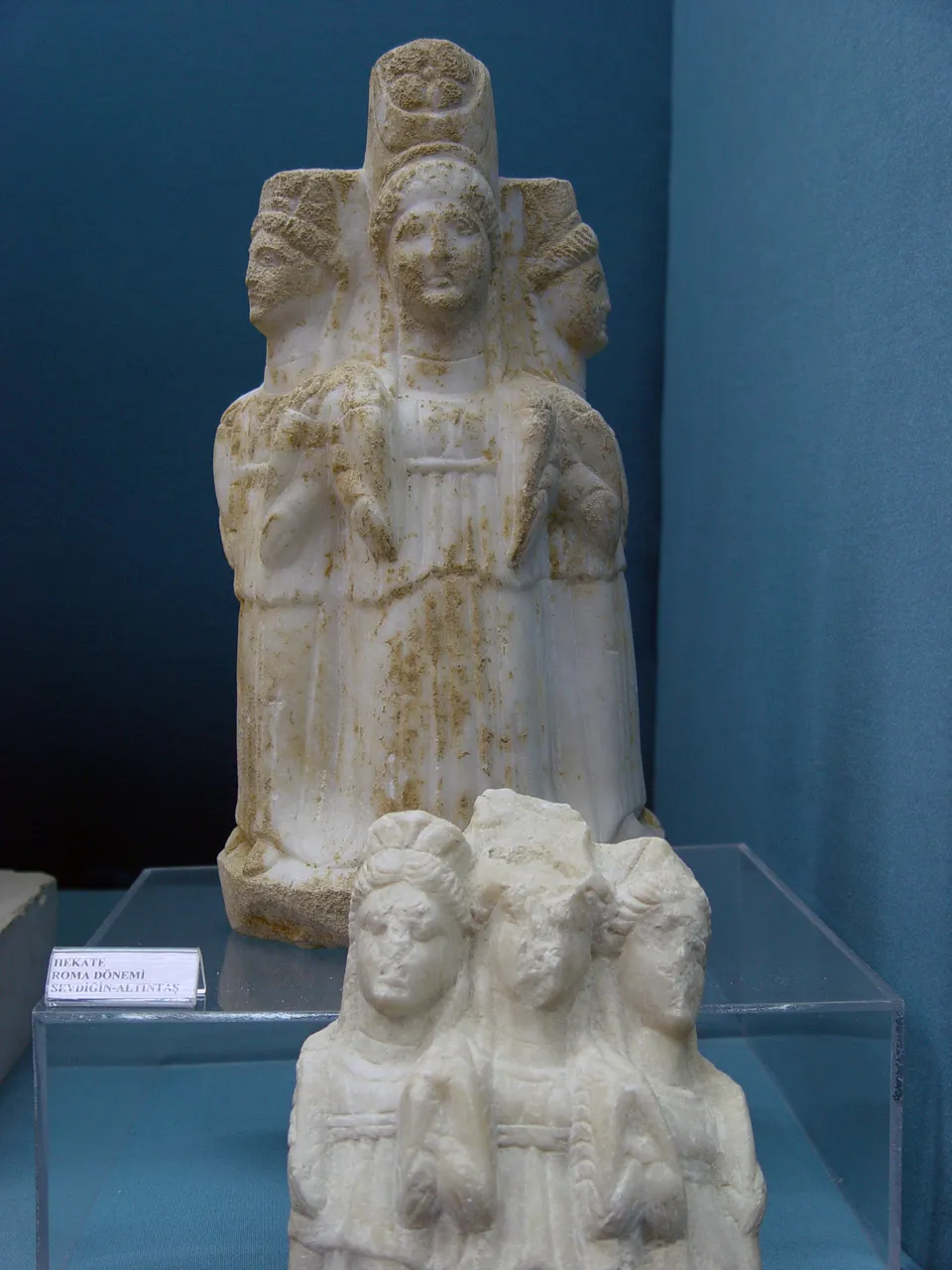
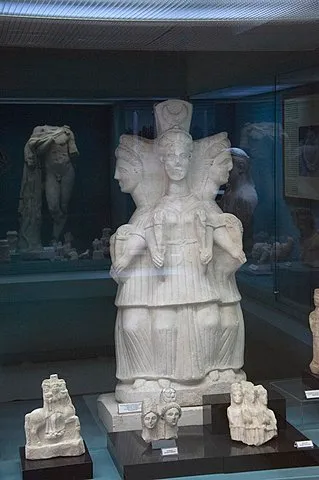
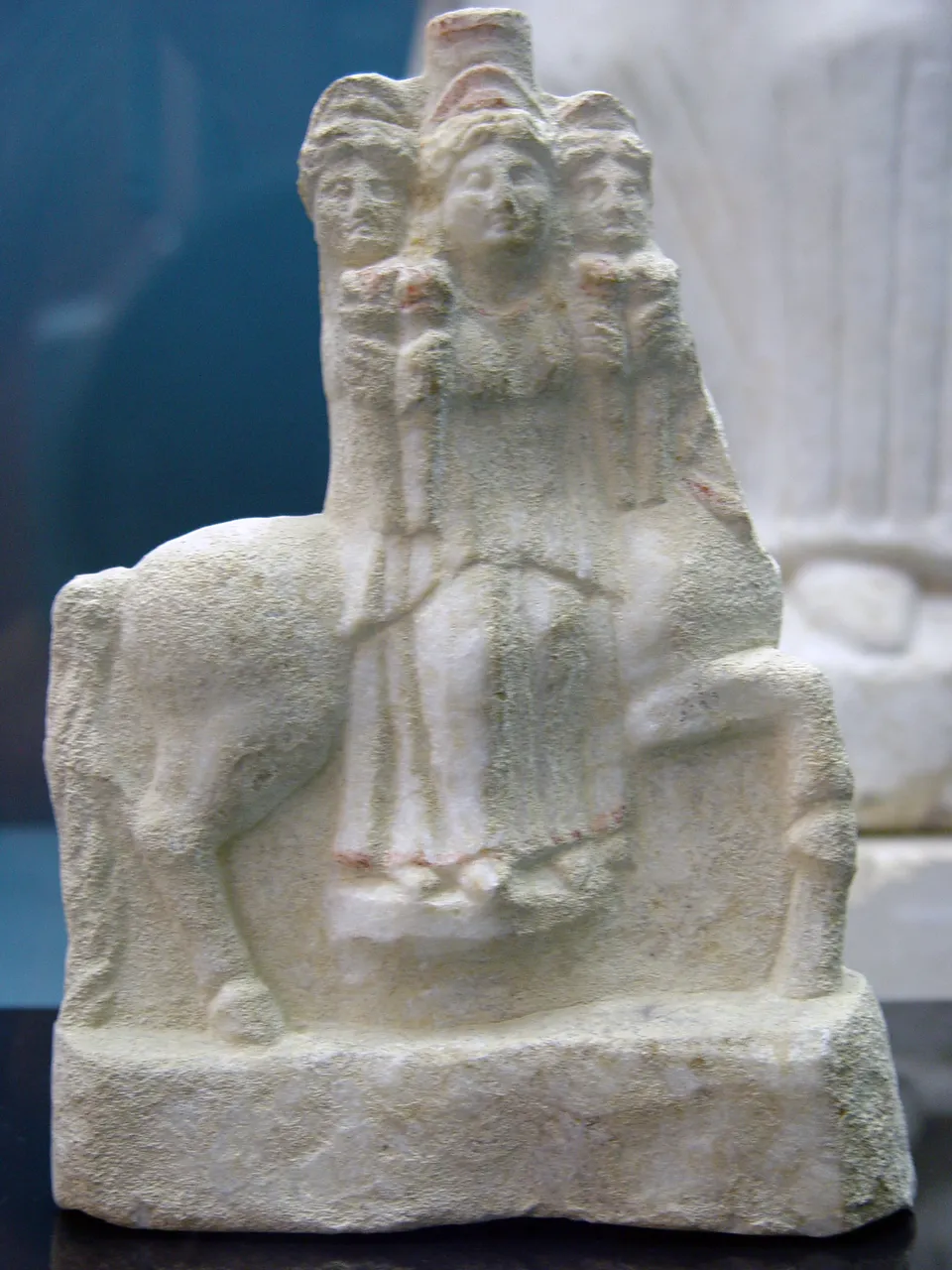
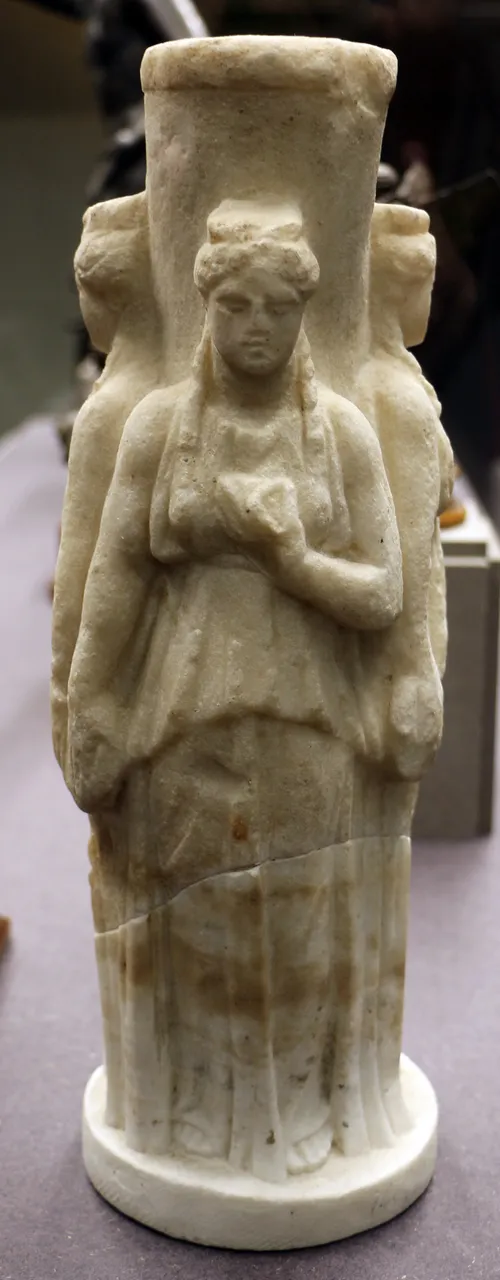
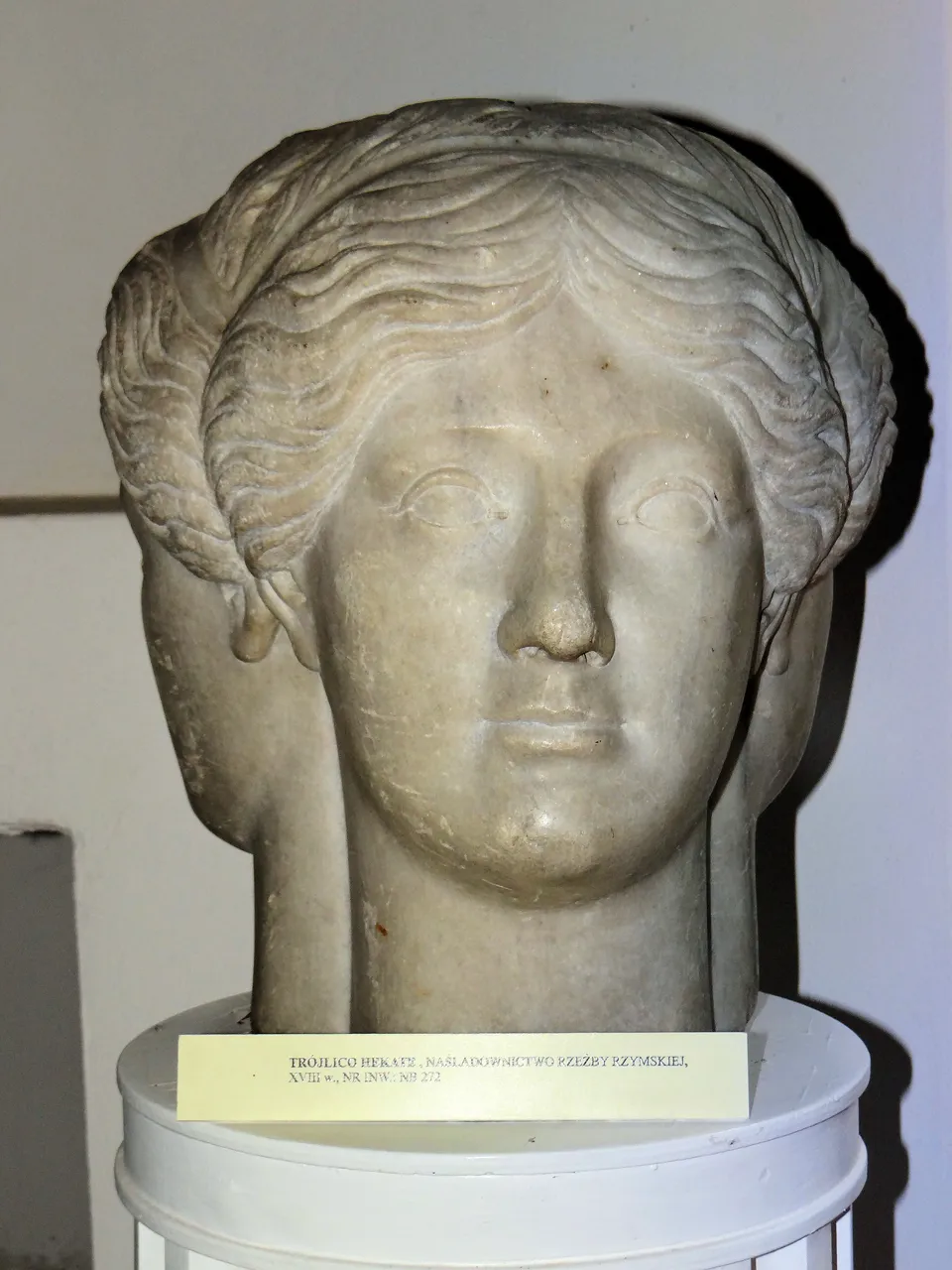
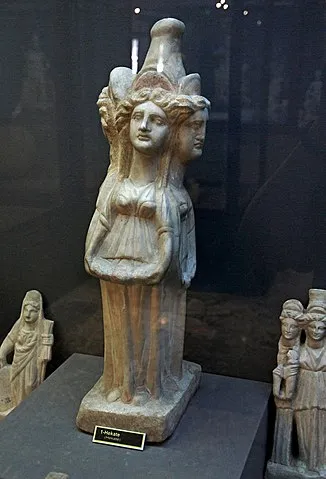
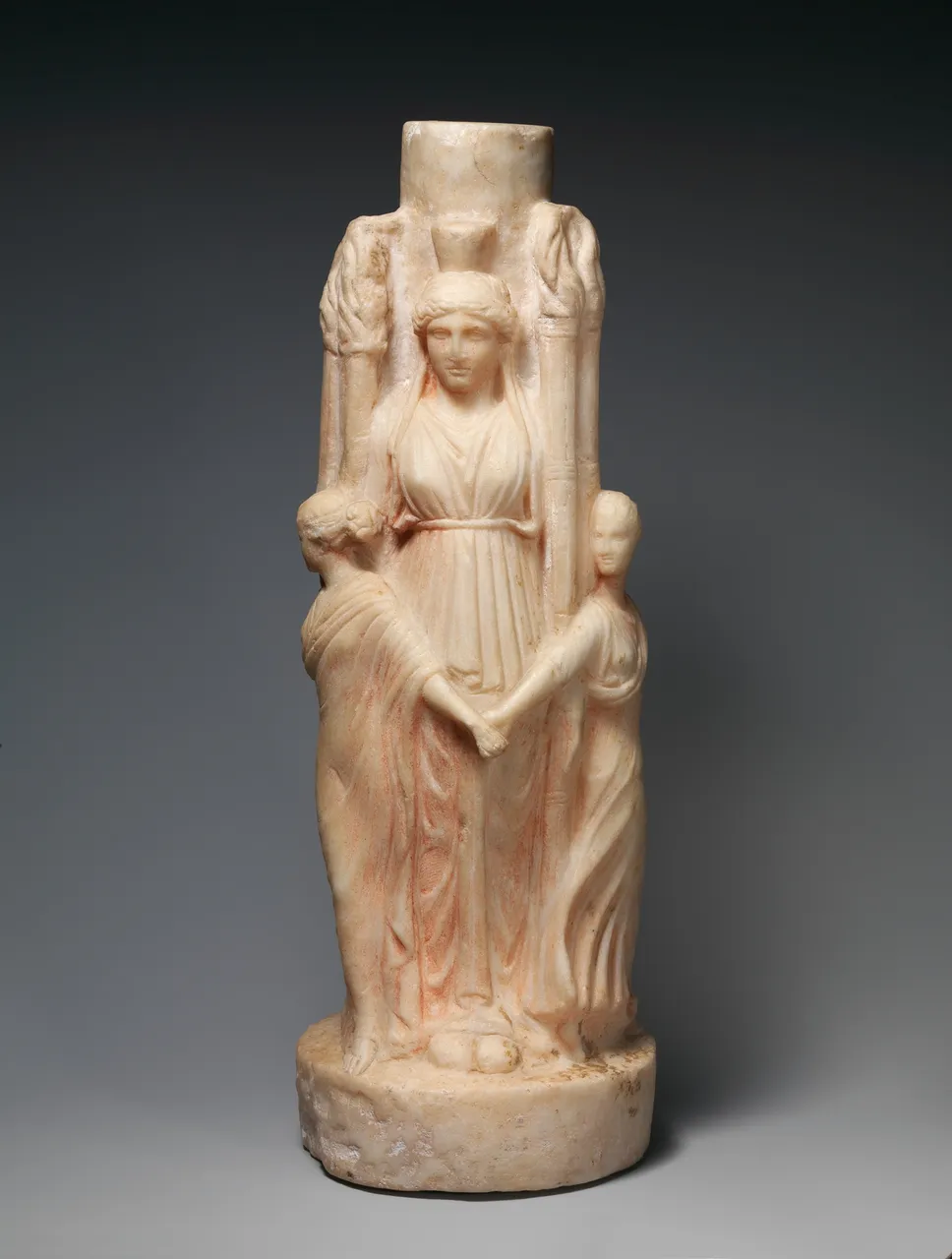
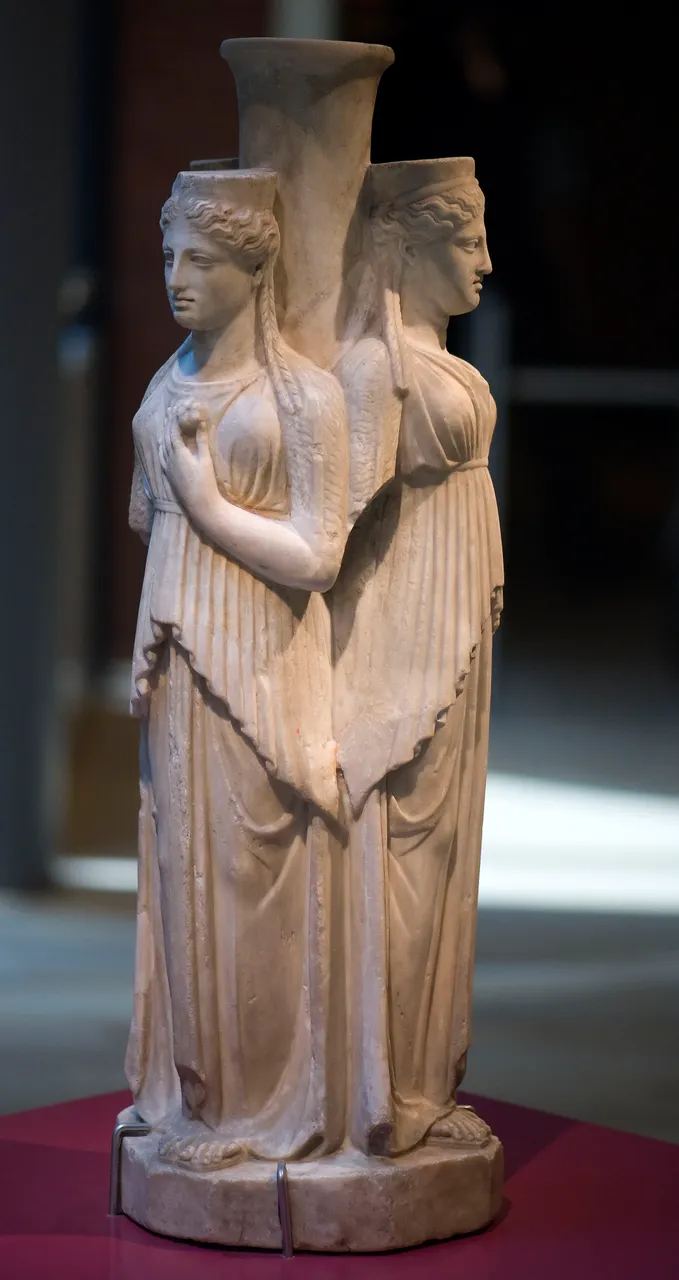
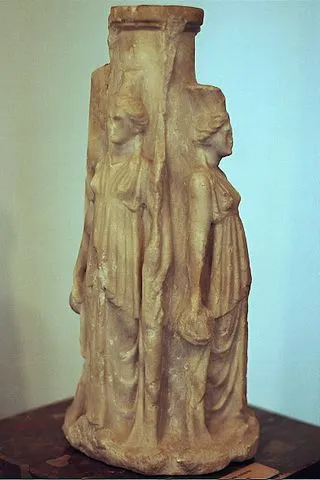

O Mother of gods and men, thou that art the assessor of Zeus and sharest his throne, O source of the intellectual gods, that pursuest thy course with the stainless substance of the intelligible gods; that dost receive from them all the common cause of things and dost thyself bestow it on the intellectual gods; O life-giving goddess that art the counsel and the providence and the creator of our souls; O thou that lovest great Dionysus, and didst save Attis when exposed at birth, and didst lead him back when he had descended into the cave of the nymph; O thou that givest all good things to the intellectual gods and fillest with all things this sensible world, and with all the rest givest us all things good! Do thou grant to all men happiness, and that highest happiness of all, the knowledge of the gods; and grant to the Roman people in general that they may cleanse themselves of the stain of impiety; grant them a blessed lot, and help them to guide their Empire for many thousands of years! And for myself, grant me as fruit of my worship of thee that I may have true knowledge in the doctrines about the gods. Make me perfect in theurgy. And in all that I undertake, in the affairs of the state and the army, grant me virtue and good fortune, and that the close of my life may be painless and glorious, in the good hope that it is to you, the gods, that I journey! Hymn to the Mother of the Gods — from The Works of the Emperor Julian, translated by Emily Wilmer Cave Wright
Next post will cover Qetesh, whose 'epithets include "Mistress of All the Gods", "Lady of the Stars of Heaven", "Beloved of Ptah", "Great of magic, mistress of the stars", and "Eye of Ra, without her equal."' I also want to include a post on the following goddess too (I will find her name... Ayia Triada = Beautiful Lady of Three Worlds?):
